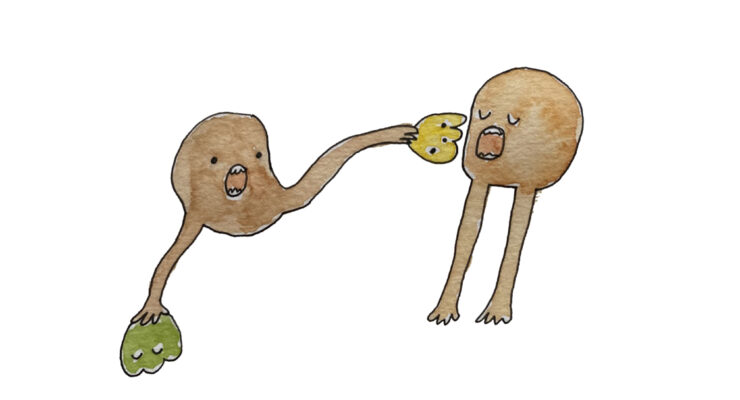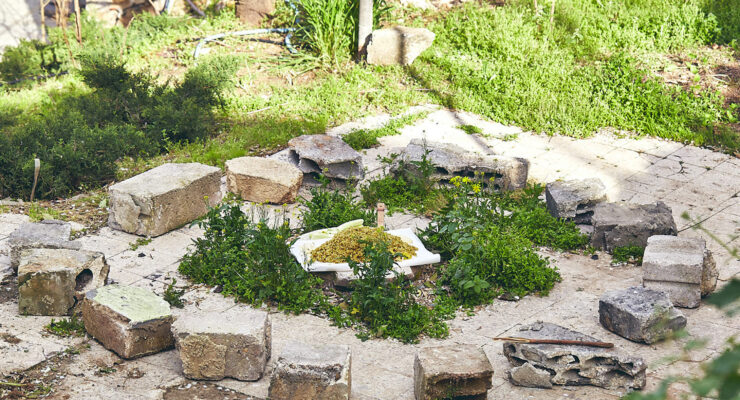Efficiency, a Social Perspective and Food Dreams
Lotte Meeuwissen is a Dutch Food Designer based in Barcelona. She invents culinary interactions with a focus on the social nature of food. Lotte uses "play" as a tool to enable her audience to focus on means rather than ends, allowing people to try out new things, to revise, modify and explore. With her work she creates new social bonds, both with food as well as amongst people. We talked with Lotte about efficiency, a social perspective and food dreams.
How did you come to food and design and what intrigues you about it?
I love to observe people around me. I look at people’s movements, behavior, routines, intuitive actions, and understanding of the world. The past couple of years my mind has been consumed by the changes seen in (mainly Western) society. We live in a world with a “saving time” mentality, and the technological developments of this century reflect an obsession with the creation of time-saving devices and systems to make the world move as efficiently as possible. In the case of food, this trend is embodied in the way food is currently grown, produced, processed, consumed and enjoyed. It can be found in the design of (fast) food places, supermarkets, services, packages, kitchenware, tableware and recipes.
I became fascinated by these innovations because they try to take away an essential ingredient of food: connectivity. For instance, many great food innovations are focused on alternative methods for growing, distributing and integrating food production in our cities. They generate new systems of local supply chains that run faster, fresher and healthier—altogether more efficiently. However, not very many of them consider the social impact they could have.
Lots of initiatives stop their development at the moment they find a way to increase efficiency, but I see tons of social opportunities hidden within these ideas. I believe that, when we recognize the social power food has, we can transform those developments into social innovations.
For example, an alternative local farm can become a social hotspot, a place of social bonding, or even a new cultural tradition. To rethink those ideas from a social perspective enables us to both physically as well as psychologically benefit from food innovations. We might not reach the highest level of efficiency, but we will transmit consciousness on the importance of being connected through food. Because at the end of the day, situations involving food are social and meaningful gestures created within a cultural framework. They enable us to connect with ourselves well as with others.









